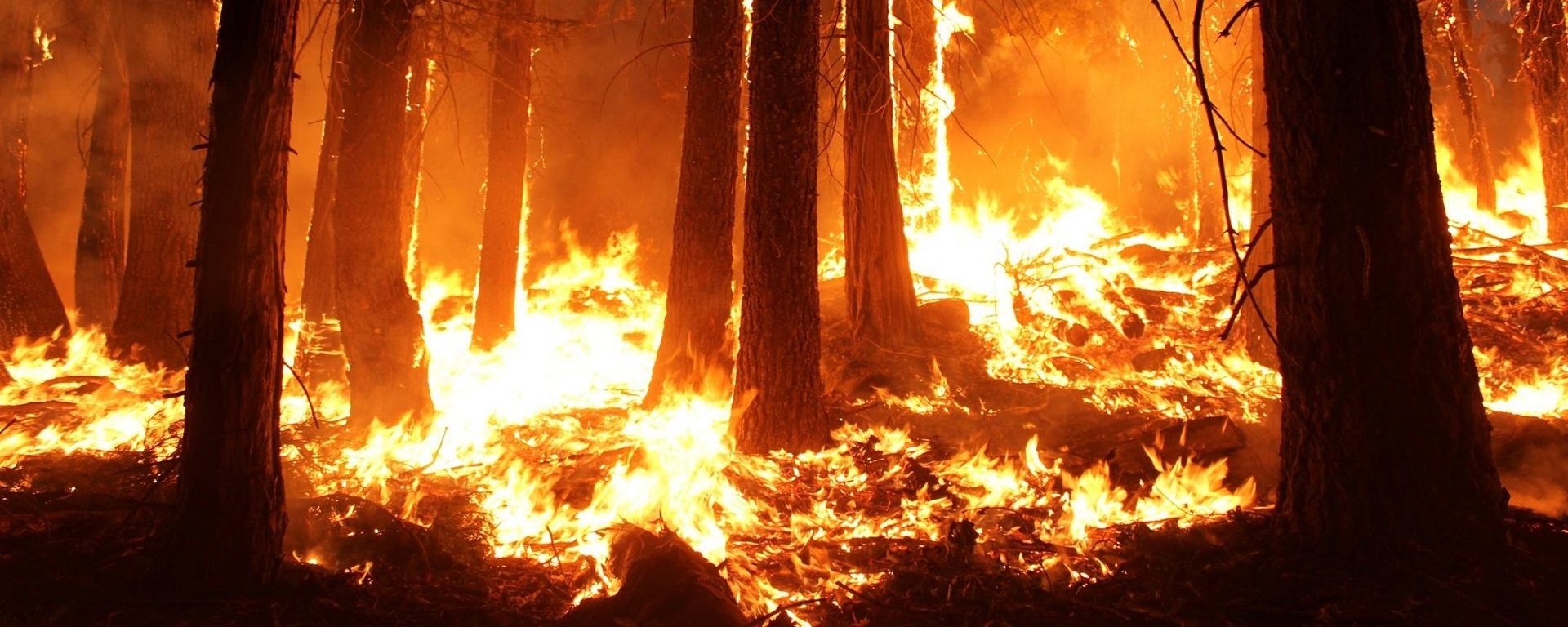Doesn’t it seem like the world is in a constant state of emergency these days? Between the COVID-19 pandemic, wildfires decimating the great American West, and political unrest in many democracies, it can certainly feel that way. The emergencies are hard to ignore. However, what sometimes goes unrecognized, are the health-related effects of seemingly non-health-related emergencies.
With their swift and utterly selfless commitment to battling the virus, emergency workers were put in the spotlight as soon as COVID-19 surfaced. Certainly, the pandemic underlined the importance of emergency management directors. But other issues we’re facing, such as the wildfires and political unrest, have much to do with emergency management (and public health), too.
After the fires have been maintained, who is going to track and treat the long-term effects of smoke inhalation in Californian children? Who will measure and attempt to mitigate the level of harmful toxins leaching into groundwater aquifers due to debris runoff? When an election has come to pass, can an emergency management director reignite disparate individuals’ sense of unity? Some of these possibilities might seem far-fetched, but the truth is, the emergency management director’s job is to see the big picture. There may be disasters that they can forecast and prevent in unexpected arenas. That is at the heart of what they do.
Emergency management directors recognize hazards in all sorts of forms: health and safety, long and short term, and across different populations. Then, they organize and dispatch a multi-faceted response in order to minimize those identified risks to humans and their environments.
If you’re reading this and thinking how emergency management directors must be in demand, you are right! According to the Bureau of Labor Statistics, the job outlook for emergency management directors is growing at pace with all occupations, about 4%. The majority of directors (52%) work for local government. An aging and retiring workforce population will open opportunities to new emergency management directors. Meanwhile, it’s easy to see how a healthcare focus to your emergency management dreams could produce excellent career results.
There are a few educational avenues you can take to become an emergency management director. Some people come from a business or public health background. Others may spend a long time working in law enforcement, fire safety, or for the military, because these areas of work offer transferable experience to emergency management. Though lengthy experience may qualify some for an emergency management director job, a bachelor’s or master’s degree is typically required, depending on the job. A master’s degree cam qualify you for more advanced roles more quickly, and is therefore a common path.
As you may gather, a Master’s in Public Health (MPH) is one excellent way to gain knowledge and experience effectively and efficiently. Not only is the coursework in an MPH program directly applicable to the emergency management director job description, but a master’s degree makes an aspiring director shine more brightly than peers with less education.
Goodwin’s MPH curriculum covers core topics such as Public Health Policy and Occupational and Environmental Health. There are generous electives offered over the course of the program, and students choose from options like:
- S. Healthcare Delivery Systems
- Global Public Health
- Risk Communication
- Emerging Infectious Diseases
- Public Health Preparedness
Imagine interviewing for the Connecticut State Division of Emergency Management Department. You notice that the department’s mission is to work collaboratively with state-wide and federal partners, as well as the public, in order to manage response and resources to emergencies. They do so in order to protect the life and property of CT residents, through a program of “prevention, planning, preparedness, response, recovery, mitigation, and public education.” Consider this: your MPH education, both core classes and electives, speak directly to this mission and to others like it. Your interview talking points are already laid out for you!
People who are really good at their jobs will meet and excel at the skillsets that are central to success in their field. As an aspiring emergency management director, take this mini-quiz. Do you have:
Communication and interpersonal skills? – Your preparedness plan must be clear and succinct. You’ll need to convey it to a variety of audiences, including government agencies and law enforcement, as well as the public!
Critical-thinking and decision-making skills? – Part of your job will be to anticipate problems and think ahead. You’ll need to keep your quality of thinking and analyzation skills crystal clear, even when under stress. Even emotional situations will need to be addressed from a cost-and-benefit mindset.
Leadership skills? – Working with diverse teams will be part of your job. Keeping different groups motivated, directed and on-track will be essential to the success of your response plan!
Do you possess these qualities? If you think you’re up to the challenge of tackling the world’s biggest problems, an MPH degree is a clear next step. To learn more about what Goodwin University can offer you in your journey to become an emergency management director, simply request more information online or give us a call at 800-889-3282. Start your journey to a disaster and emergency relief career in public health, today!
Goodwin University is a nonprofit institution of higher education and is accredited by the New England Commission of Higher Education (NECHE), formerly known as the New England Association of Schools and Colleges (NEASC). Goodwin University was founded in 1999, with the goal of serving a diverse student population with career-focused degree programs that lead to strong employment outcomes.

